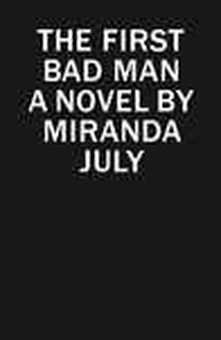
Cheryl Glickman is a single woman in her early 40s, stuck in a rut as peculiar as you’re ever likely to find, yet one that resonates with more conventional lives. Living alone, she’s devised an ingenious, if obsessional, system for minimising housework and the despair that can ensue when the mess gets out of hand (p21):
Cheryl has a weird non-job in a weird non-profit organisation that began as a women’s self-defence studio and has morphed into peddling martial-arts-inspired fitness DVDs. The company has absorbed some of the weirder aspects of Japanese office culture (p67):
If a task requires a group effort – for example, moving a heavy table – it should be begun by one person, and then after a respectful pause a second person can join in, with a bowed head, saying, “Jim can move the table alone, he is the best at moving the table, I am joining him even though I’m not much help, because I’m not good at moving the table.” Then, after a moment, the third person can join in, first bowing his head and stating, “Jim and Cheryl can move the table alone,” etc. And so on, until there are enough people assembled for the task.
Cheryl inhabits a fantasy whereby any infant might prove to be the reincarnation of a baby boy she met when she was nine, and she can have a romance spanning centuries with Philip, a board member twenty years her senior, who barely acknowledges she’s there. Into this world of eccentric order and unfulfilled longing comes Clee, her bosses’ buxom twenty-year-old daughter. Foisted on her as a housemate, Clee takes over her couch and TV remote control, her stacks of dirty dishes in the sink and the foul smell of her feet contaminating Cheryl’s carefully preserved space. Clee is not only lazy and self-centred, she’s a bully who nevertheless proves to be the catalyst to Cheryl renouncing her neuroses and finding a satisfying life in the real world.
Miranda July is an award-winning filmmaker, artist and writer of short stories and non-fiction. You’ve probably already heard of her, but I hadn’t, so had no idea where The First Bad Man would take me. My reactions to the novel went through three phases: initial delight in the laugh-out-loud humour from an eccentric female narrator of the type more commonly depicted as male; a slight cooling off around the middle section with its emphasis on the crazy therapist, raging sexual fantasies and violent role-play games; to being surprisingly moved as things began to work out for Cheryl, and Clee too. Overall, I’m impressed with a writer who can combine slapstick humour with a deep compassion for the human condition, and grateful to Canongate for my review copy and to Naomi Frisby for bringing the novel to my attention.
This joyful novel seems the perfect companion for a 99-word story on the theme of feeling good. Still glowing from Friday’s compassion blogathon, I’ve come up with a prose poem on the journey towards becoming a person (to borrow a phrase from the title of a book by Carl Rogers, founder of the person-centred approach to therapy). It could apply to Cheryl in The First Bad Man, it could apply to someone finding a more patient and sane therapist than Ruth-Anne, it could apply to my character Diana towards the end of Sugar and Snails, but, hopefully, it can be whatever the reader chooses:
They laughed when I told of my desire; it was no surprise when you laughed too.
You claimed you were different, you claimed that you cared.
You prodded and cajoled me to dig deeper still. You absorbed all my words and left me only tears.
You cut me open; put my ugly wanting on display. Like an old-time fairground freak show, the butt of scorn.
You stared at it lovingly, never once averting your gaze. You named it beautiful, exciting, brave.
You helped me to touch it. I laughed, you laughed, we laughed in perfect harmony, brimming with joy.
| | And, although it’s taken me in a different direction to that of Ella Fitzgerald and Louis Armstrong, do enjoy the song that got this little effort started. |





















 RSS Feed
RSS Feed





















